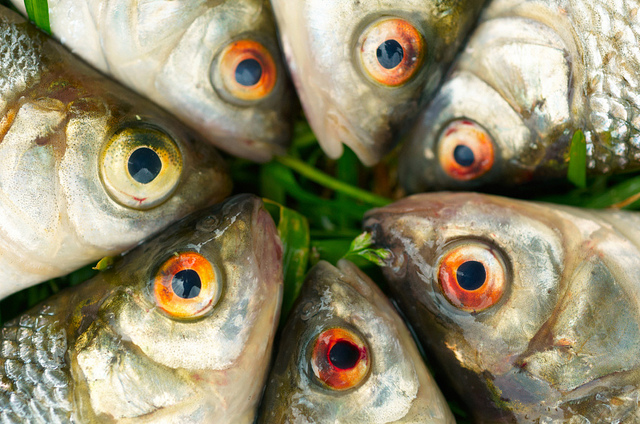Podcast: Play in new window | Download
Subscribe: RSS

The fish held a meeting, and decided to spread the alarm, but it was too late. They were all dead. (Photo by James Palinsad/Flickr)
You see the stories here and there, usually in local West Coast papers and on specialized websites. One has a gross picture of a dissolving starfish, another a heart-tugger of a starving sea lion pup. Then there are the stories that have no pictures because they are about something that isn’t there, such as sardines and krill. Or something that is happening but cannot be watched, like the slow impassive death of oyster beds. It takes a while for it to begin to dawn on you: Holy Crap! Everything on our Pacific Ocean coast seems to be dying! Continue reading

